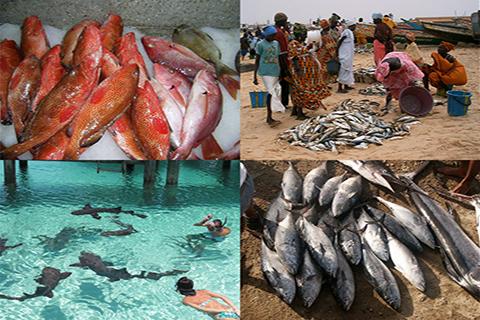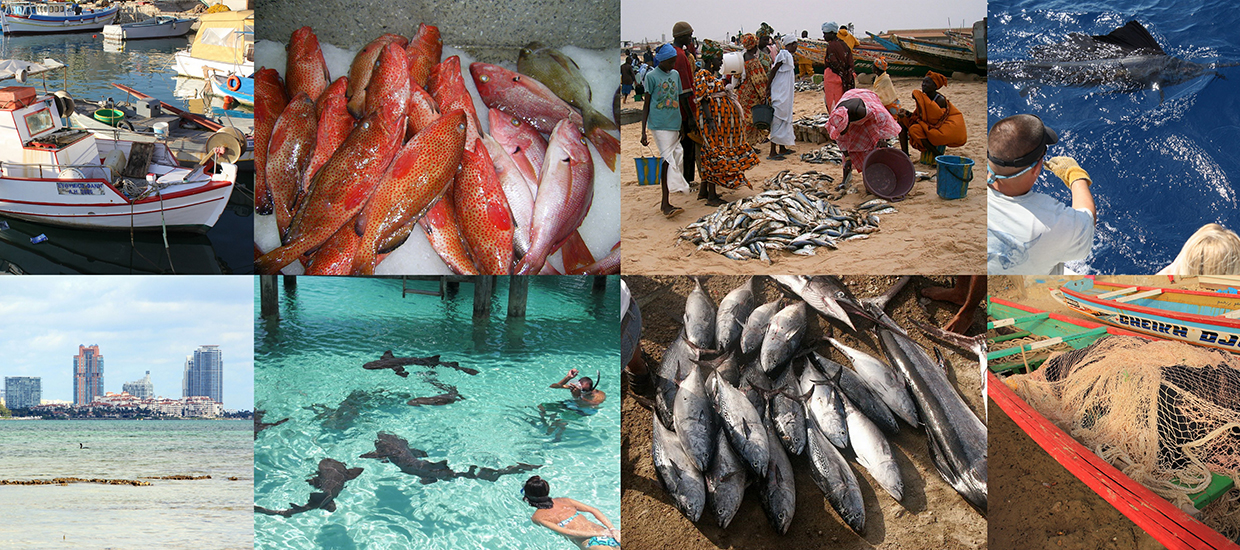Marine ecosystems provide a number of services to humans. These range from providing seafood, allowing for recreational opportunities, protecting coastal assets, etc… To maintain the flow of these services for the benefits of people we need to understand how human use can affect the structure, function and productivity of ecosystems. We can then translate such understanding of impacts of human use on ecosystem services into scientific advice to help managers interpret and predict the effects of past and future regulatory actions.
Our group focuses in developing the understanding of ecosystem dynamics and the resulting ecosystem services with a special focus on the provision of commercial seafood and recreational fishery opportunities. Our research involves collecting and analyzing ecological observations and fishery data, and incorporating these into population and ecosystem models. We use models to provide advice to fishery managers so that they can evaluate the success of previous management action and assess the potential benefit of future strategies.
Although we apply our skills and resources to a variety of ecosystems, we have a particular focus on the study of high-seas pelagic ecosystems supporting fisheries for tuna and other fish species of high value commercially and recreationally. We conduct much of our research in partnership with scientists of the International Commission for the Conservation of Atlantic tunas (ICCAT) and/or the National Marine Fisheries Service (NMFS) of the National Oceanic and Atmospheric Administration (NOAA) with funds from the Cooperative Institute of Marine and Atmospheric Studies (CIMAS).
We collaborate with research partners in developed and developing countries in all oceans, and we deliver scientific products relevant to the evaluation of management strategies for continental shelf and open ocean resources at the regional, national and international scale.
Contact Information:
David J. Die, Research Associate Professor
Telephone: (305) 421-4607
E-mail: ddie@rsmas.miami.edu





